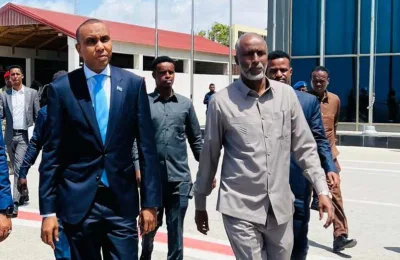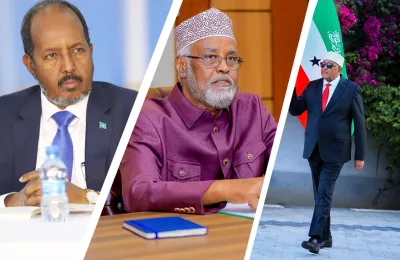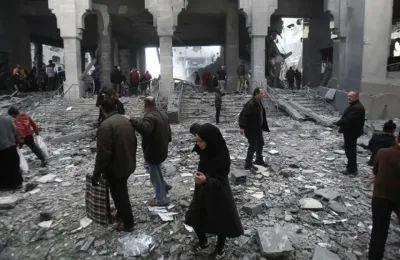Kenya, 10 April 2015 (IRIN) – Hundreds of thousands of Somali refugees are among those hardest…

© Kate Holt/IRIN
Kenya, 10 April 2015 (IRIN) – Hundreds of thousands of Somali refugees are among those hardest hit by Kenya’s closure of remittance firms in the wake of the 2 April shooting of at least 147 university students in Garissa by Al-Shabab militants.
Thirteen such firms had their licences revoked on 7 April by the Central Bank of Kenya in a measure the government said was designed to curb the financing of terrorism.
Although increasingly a regional entity, Al-Shabab is predominantly a Somali insurgency and Kenyan officials have frequently claimed that it recruits and plans operations from within refugee camps.
It will make things difficult for people who already have a very difficult life”
Kenya has hosted Somali refugees for more than 20 years, mostly in the eastern Dadaab complex, which is currently home to more than 350,000 refugees and asylum seekers.
“Remittances are very important,” said John Kisimir, a spokesman for World Vision, an aid agency with programmes in Dadaab.
The closures mean “most families won’t be able to receive money from friends and families from abroad. It will make things difficult for people who already have a very difficult life. Refugees have no access to jobs, no other sources of income. They are no longer free to move across the country but are confined to the camp, or they face arrest,” he told IRIN.
Kisimir explained that while refugees do receive aid from the World Food Programme, “food aid is never enough.”
“Remittances fill the gap between what humanitarian agencies supply and what people need. No humanitarian agency will give sugar, for example. Remittances help refugees normalize their lives and hold their heads up with dignity.”
“A refugee’s life is very simple. $100 a month will take them a long way,” he added.
In Dadaab, which consists of several separate camps, there are some 30 remittance outlets, outside of which hundreds of customers queue every day to collect money sent by friends and relatives abroad. Recipients spend the money on food, clothes, medicine and education. Even firms not on the list have now suspended their businesses, for fear of harassment by police.
One regular customer is unemployed father-of-seven Mohamed Abdi Shire, who has been living in Dadaab since fleeing his home in the Somali port of Kismayo in 1992, shortly after the start of Somalia’s civil war.
Shire normally receives $200 a month from his brother who lives abroad.
“Those who carried out this massacre should go to hell! Not only did they kill innocent students, but also stopped the lifeline of the refugees,” he told IRIN. “I am now jobless. I can’t afford to put food on the table. I am anxious. What should I do?”

© Aden Hassan Tarah/irinnews
For Hassan Farah, who has lived in Dadaab since he was six, the closure of the remittance firms means he has had to postpone his wedding.
“I am so disappointed that I can’t make it this week. This thing has even affected the happiest day of my life,” he said. “I am trying to get a loan to make it work, because we can’t wait for things when we are not sure when they will end.”
Curfew
A 6pm-to-6am curfew has been imposed for two weeks in four Kenyan counties since shortly after the university killings, including Garissa County, where Dadaab is located.
Hussein, 55, was arrested just after 6pm on 8 April while standing outside his shack in Hagadera, one of Dadaab’s camps.
All of a sudden “a Land Rover on patrol packed with police officers arrived next to where I was standing,” he recalled.
“They took my hand firmly and lifted me into the vehicle. They asked me why I was standing in the middle of the road. Before I could answer anything, they started slapping me.”
After spending more than 24 hours in different police cells and paying a “fine” of Ksh 10,000 ($107), Hussein was released.
“The conditions in the cells were horrible; the room was so hot you could barely breathe,” he said.
Send ‘em back
After the shootings, the Member of Parliament for Garissa town, Adan Barre Dualle, who also serves as Majority Leader in the National Assembly, called on the government to relocate Somali refugees in Kenya back to Somalia, saying the camps were a threat to national security.
“There is serious actionable intelligence showing that part of the refugee camps have become fertile hiding grounds for Al-Shabab,” Dualle said in an interview with the Standard newspaper.
“They are said to train there, conduct radicalization classes and send suicide bombers from there. We are saying, please relocate them across the border 30 kilometres inside Somalia and let UNHCR [the UN agency for refugees] build for them the necessary infrastructure and provide security. The security of our people is more important than international obligations or the security of refugees.”
These obligations were underlined in a November 2013 agreement between Somalia, Kenya and UNCHR, in which Kenya committed to the principal of only repatriating Somali refugees who volunteered to return home when it was safe enough in Somalia to do so.
The agreement came under strain in 2014, when a protracted crackdown by Kenyan police against Somali refugees and other residents led the Somali government to accuse Nairobi of violating the tripartite deal and the 1951 refugee convention.







